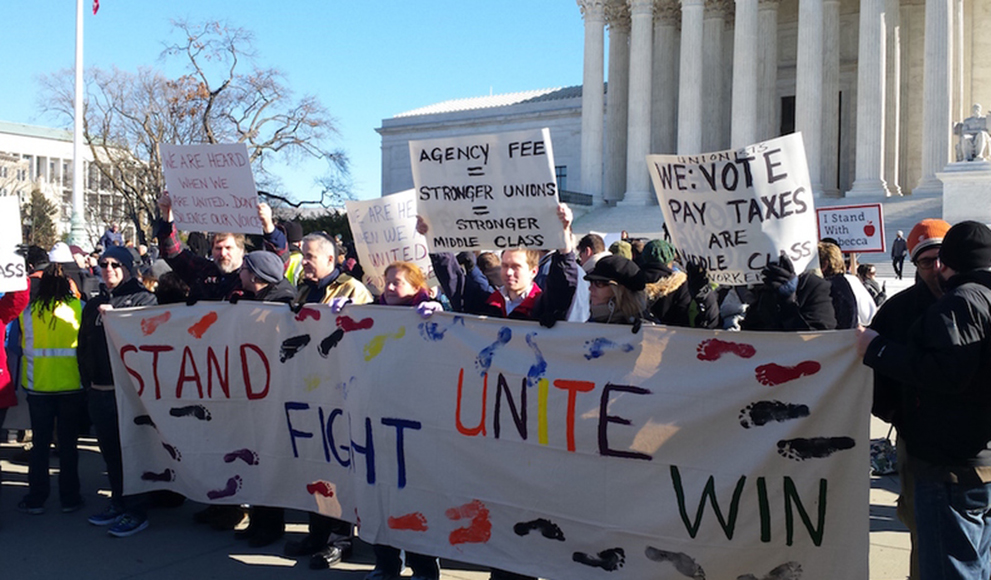Lecturer’s Research and Amicus Brief Expound On Key Issues In Friedrichs v. California Teachers Association

Eunice Han, visiting lecturer in economics, authored an amicus brief in support of the defendants in Friedrichs v. California Teachers Association, which is currently being heard by the Supreme Court. The case could have profound implications for unions and public-sector employees nationwide.
Han’s brief is based on her recently published study on the impact of unionism on education and local labor markets. The study, co-written with Richard Freeman of Harvard University and the National Bureau of Economic Research, and David Madland and Brendan V. Duke of the Center for American Progress, has been cited in Business Insider and The Atlantic.
“The main issue in the Friedrichs v. California Teachers Association case is whether nonunion teachers should pay this agency fee—their ‘fair share’ of union dues,” said Han, who specializes in labor economics and the economics of education. The plaintiffs in the case argue that requiring nonunion employees to pay union dues violates their First Amendment rights by forcing them to pay for advocacy they do not agree with.
“My studies show that unions raise the economic mobility of workers and help the American middle class. Thus, the weakening of unions is more likely to contribute to greater income inequality, less mobility, and a shrinking middle class,” said Han.
American attitudes toward unions have changed in the past three decades. Once considered an essential tool and protection for workers, some now blame unions for increasing the cost of public education and eroding the academic performance of U.S. students.
Han grew up and attended high school in South Korea, where unions are viewed more favorably. “Most Korean teachers are union members, and teaching is a highly respected career,” she said. “But people do not blame unions if students underperform.”
When Han came to the United States, she was struck by the difference in attitude and wanted to research whether unions, as an institution, are detrimental to education. Her doctoral dissertation at Harvard included a chapter on how agency fees contribute to unions’ bargaining power. Han’s advisor at Harvard, Richard Freeman (one of the co-authors of her recent study), remembered that paper and suggested that the lawyers for the California Teachers Association contact her about writing an amicus brief substantiating their position.
Han wrote the brief last fall and filed it in November. She shared her brief, along with the plaintiff's brief, with her education policy class at Wellesley and asked students to defend a side in an in-class debate. “I hope my students will remember that part of the course fondly,” she said.
U.S. labor law requires that unions representing a group of workers must equally represent all of those workers, including nonpaying members. Han suggests that this may create a so-called “free-ride” problem, (where people use union resources but don’t pay for representation). This, Han said, will weaken the financial status of unions, their bargaining power, and eventually the overall strength of unions and, in turn, affect local labor markets.
According to Han, teacher performance could also decline. Her current research, using a nationally representative sample of teachers, shows that districts with collective bargaining power or higher union density dismiss more underperforming teachers than districts without bargaining contracts or lower union density. “This leads to better teaching and to a higher standard of living for everyone who benefits from the union’s advocacy,” Han said.
The Supreme Court’s ruling on Friedrichs v. California Teachers Association is likely to come in June. “It is very exciting that my research is relevant for people’s lives, but I also feel some pressure because this is a high-stakes case that will change the law permanently in 23 U.S. states,” Han said. “When conducting research, you want to show readers that you are ‘right’—but not because you want to win an argument. This time, however, winning really does matter.”
